Lecturer Bios
Luca Benini
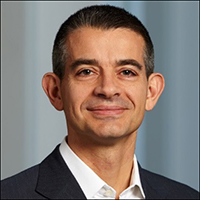 Luca Benini holds the chair of digital Circuits and systems at ETHZ and is Full Professor at the Universita di Bologna. He received a PhD from Stanford University. He has been visiting professor at Stanford University, IMEC, EPFL. In 2009-2012 he served as chief architect in STmicroelectronics France. Dr. Benini's research interests are in energy-efficient computing systems design, from embedded to high-performance. He is also active in the design ultra-low power VLSI Circuits and smart sensing micro-systems.He has published more than 900 peer-reviewed papers and five books (h-index 95). Benini is an ERC-advanced grant winner, a Fellow of the ACM, of the IEEE and a member of the Academia Europaea. He is the recipient of the 2016 IEEE CAS Mac Van Valkenburg award.
Luca Benini holds the chair of digital Circuits and systems at ETHZ and is Full Professor at the Universita di Bologna. He received a PhD from Stanford University. He has been visiting professor at Stanford University, IMEC, EPFL. In 2009-2012 he served as chief architect in STmicroelectronics France. Dr. Benini's research interests are in energy-efficient computing systems design, from embedded to high-performance. He is also active in the design ultra-low power VLSI Circuits and smart sensing micro-systems.He has published more than 900 peer-reviewed papers and five books (h-index 95). Benini is an ERC-advanced grant winner, a Fellow of the ACM, of the IEEE and a member of the Academia Europaea. He is the recipient of the 2016 IEEE CAS Mac Van Valkenburg award.
David Carrera
 David Carrera received the MS degree at the Technical University of Catalonia (UPC) in 2002 and his PhD from the same university in 2008. He is an associate professor at the Computer Architecture Department of the UPC. He is also the Head of the "DataCentric Computing" research group at the Barcelona Supercomputing Center (BSC). His research interests are focused on the performance management of data center workloads. In 2018 he was awarded a medal in the Agustín de Betancourt prize for young researchers by the Spanish Royal Academy of Engineering. He is co-founder and Scientific Director of the start-up NearbyComputing SL. In 2015 he was awarded an ERC Starting Grant for the project HiEST (2015-2020), and ICREA Academia award (2015-2020) and an ERC Proof of Concept grant ('Hi-OMICS') in 2017 to explore the commercialization of an SDI orchestrator for genomics workloads. He has participated in several EU-funded projects and has led the team at BSC that has developed the Aloja project (aloja.bsc.es) and the servIoTicy platform (servioticy.com). He is the PI for several industrial projects and collaborations with IBM, Microsoft Intel and Cisco among others. He was a summer intern at IBM Watson (Hawthorne, NY) in 2006, and a Visiting Research Scholar at IBM Watson (Yorktown, NY) in 2012. He received an IBM Faculty Award in 2010. He is an IEEE and ACM member.
David Carrera received the MS degree at the Technical University of Catalonia (UPC) in 2002 and his PhD from the same university in 2008. He is an associate professor at the Computer Architecture Department of the UPC. He is also the Head of the "DataCentric Computing" research group at the Barcelona Supercomputing Center (BSC). His research interests are focused on the performance management of data center workloads. In 2018 he was awarded a medal in the Agustín de Betancourt prize for young researchers by the Spanish Royal Academy of Engineering. He is co-founder and Scientific Director of the start-up NearbyComputing SL. In 2015 he was awarded an ERC Starting Grant for the project HiEST (2015-2020), and ICREA Academia award (2015-2020) and an ERC Proof of Concept grant ('Hi-OMICS') in 2017 to explore the commercialization of an SDI orchestrator for genomics workloads. He has participated in several EU-funded projects and has led the team at BSC that has developed the Aloja project (aloja.bsc.es) and the servIoTicy platform (servioticy.com). He is the PI for several industrial projects and collaborations with IBM, Microsoft Intel and Cisco among others. He was a summer intern at IBM Watson (Hawthorne, NY) in 2006, and a Visiting Research Scholar at IBM Watson (Yorktown, NY) in 2012. He received an IBM Faculty Award in 2010. He is an IEEE and ACM member.
Francesco Conti
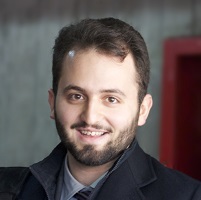 Francesco Conti received the Master degree (cum laude) and the Ph.D. degree from the University of Bologna in 2012 and 2016, respectively and is currently a post-doctoral researcher at the Integrated Systems Laboratory, ETH Zurich, Switzerland and the Energy-Efficient Embedded Systems laboratory, University of Bologna, Italy. His research interests focus on energy-efficient heterogeneous multicores and their applications to ultra-low-power embedded artificial intelligence. He has co-authored more than 30 papers on high-impact conferences and journals and has been the recipient of three best-paper awards (ASAP’14, EVW’14, CODES+ISSS’18) and the 2018 HiPEAC Tech Transfer Award for his work on high-efficiency hardware acceleration of convolutional neural networks.
Francesco Conti received the Master degree (cum laude) and the Ph.D. degree from the University of Bologna in 2012 and 2016, respectively and is currently a post-doctoral researcher at the Integrated Systems Laboratory, ETH Zurich, Switzerland and the Energy-Efficient Embedded Systems laboratory, University of Bologna, Italy. His research interests focus on energy-efficient heterogeneous multicores and their applications to ultra-low-power embedded artificial intelligence. He has co-authored more than 30 papers on high-impact conferences and journals and has been the recipient of three best-paper awards (ASAP’14, EVW’14, CODES+ISSS’18) and the 2018 HiPEAC Tech Transfer Award for his work on high-efficiency hardware acceleration of convolutional neural networks.
Jesús Labarta
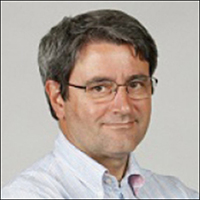 Jesús Labarta is full professor on Computer Architecture at the Technical University of Catalonia (UPC) since 1990. Since 2005 he is responsible of the Computer Science Research Department within the Barcelona Supercomputing Center (BSC). His major directions of current work relate to performance analysis tools, programming models and resource management. His team distributes the Open Source BSC tools (Paraver and Dimemas) and performs research on increasing the intelligence embedded in the performance analysis tools. He is involved in the development of the OmpSs programming model and its different implementations for SMP, GPUs and cluster platforms.
Jesús Labarta is full professor on Computer Architecture at the Technical University of Catalonia (UPC) since 1990. Since 2005 he is responsible of the Computer Science Research Department within the Barcelona Supercomputing Center (BSC). His major directions of current work relate to performance analysis tools, programming models and resource management. His team distributes the Open Source BSC tools (Paraver and Dimemas) and performs research on increasing the intelligence embedded in the performance analysis tools. He is involved in the development of the OmpSs programming model and its different implementations for SMP, GPUs and cluster platforms.
Silvio Micali
 Silvio Micali has received his Laurea in Mathematics from the University of Rome, and his PhD in Computer Science from the University of California at Berkeley. Since 1983, he has been on the faculty of the Electrical Engineering and Computer Science Department at MIT. His research interests are cryptography, zero knowledge, pseudo-random generation, Byzantine agreement, secure protocols, mechanism design, and distributed ledgers. Silvio Micali is the recipient of the Turing Award (in computer science), the Gödel Prize (in theoretical computer science), and the RSA prize (in cryptography). He is a member of the National Academy of Sciences, the National Academy of Engineering, of the American Academy of Arts and Sciences, and of the Academia dei Lincei. Furthermore, he is the founder of Algorand LLC. Algorand is a new foundational blockchain, developed from scratch, on totally new principles, which simultaneously guarantees true decentralization, scalability, and security.
Silvio Micali has received his Laurea in Mathematics from the University of Rome, and his PhD in Computer Science from the University of California at Berkeley. Since 1983, he has been on the faculty of the Electrical Engineering and Computer Science Department at MIT. His research interests are cryptography, zero knowledge, pseudo-random generation, Byzantine agreement, secure protocols, mechanism design, and distributed ledgers. Silvio Micali is the recipient of the Turing Award (in computer science), the Gödel Prize (in theoretical computer science), and the RSA prize (in cryptography). He is a member of the National Academy of Sciences, the National Academy of Engineering, of the American Academy of Arts and Sciences, and of the Academia dei Lincei. Furthermore, he is the founder of Algorand LLC. Algorand is a new foundational blockchain, developed from scratch, on totally new principles, which simultaneously guarantees true decentralization, scalability, and security.
Mauro Olivieri
 Mauro Olivieri received the Master (Laurea) degree in electronics engineering and the Doctorate degree in electronics and computer engineering from the University of Genoa, Italy, where he was assistant professor from 1995 to 1998. In 1998 he joined Sapienza University of Rome as associate professor, teaching Digital Electronics and Digital Integrated System Architectures. His research interests are digital system-on-chip design, microprocessor core design and digital nano-scale circuits. He was the scientific responsible for Sapienza University for 2 FP7 ENIAC JU European projects, 1 FP7 IAPP European project, 4 PRIN/FIRB national projects, 11 MIUR University Projects, and 8 industrial research contracts. He was a technical expert for the Italian Economic Development Ministry in the “Smart Specialization Strategy” project on the topic “Smart Cities/Communities”. He is an evaluator for the European Commission in the ECSEL Joint Undertaking. He is a visiting researcher at the Barcelona Supercomputing Center within the European Processor Initiative project. He authored over 110 papers and a textbook in three volumes on digital VLSI design. He has been a TPC member of IEEE DATE and was General Co-Chair of IEEE/ACM ISLPED’15. He is a senior member of the IEEE.
Mauro Olivieri received the Master (Laurea) degree in electronics engineering and the Doctorate degree in electronics and computer engineering from the University of Genoa, Italy, where he was assistant professor from 1995 to 1998. In 1998 he joined Sapienza University of Rome as associate professor, teaching Digital Electronics and Digital Integrated System Architectures. His research interests are digital system-on-chip design, microprocessor core design and digital nano-scale circuits. He was the scientific responsible for Sapienza University for 2 FP7 ENIAC JU European projects, 1 FP7 IAPP European project, 4 PRIN/FIRB national projects, 11 MIUR University Projects, and 8 industrial research contracts. He was a technical expert for the Italian Economic Development Ministry in the “Smart Specialization Strategy” project on the topic “Smart Cities/Communities”. He is an evaluator for the European Commission in the ECSEL Joint Undertaking. He is a visiting researcher at the Barcelona Supercomputing Center within the European Processor Initiative project. He authored over 110 papers and a textbook in three volumes on digital VLSI design. He has been a TPC member of IEEE DATE and was General Co-Chair of IEEE/ACM ISLPED’15. He is a senior member of the IEEE.
Per Stenström
 Per Stenström is professor at Chalmers University of Technology. His research interests are in computer architecture. He has authored or co-authored four textbooks, more than 150 publications and ten patents in this area. He has coordinated several national and European projects and is a recipient of an ERC advanced grant. He has been program chairman of several top-tier IEEE conferences including IEEE/ACM Symposium on Computer Architecture and acts as Senior Associate Editor of ACM TACO, IEEE Micro Magazine and is Associate Editor-in-Chief of JPDC. He has a keen interest in teaching and has recently launched two MOOCs on computer design through ChalmersX (Chalmers’s MOOC offerings at the edX platform). He is also heavily involved in innovation initiatives and has founded two startup companies. He is a Fellow of the ACM and the IEEE and a member of Academia Europaea, the Royal Swedish Academy of Engineering Sciences and the Royal Spanish Academy of Engineering Science.
Per Stenström is professor at Chalmers University of Technology. His research interests are in computer architecture. He has authored or co-authored four textbooks, more than 150 publications and ten patents in this area. He has coordinated several national and European projects and is a recipient of an ERC advanced grant. He has been program chairman of several top-tier IEEE conferences including IEEE/ACM Symposium on Computer Architecture and acts as Senior Associate Editor of ACM TACO, IEEE Micro Magazine and is Associate Editor-in-Chief of JPDC. He has a keen interest in teaching and has recently launched two MOOCs on computer design through ChalmersX (Chalmers’s MOOC offerings at the edX platform). He is also heavily involved in innovation initiatives and has founded two startup companies. He is a Fellow of the ACM and the IEEE and a member of Academia Europaea, the Royal Swedish Academy of Engineering Sciences and the Royal Spanish Academy of Engineering Science.
Michela Taufer
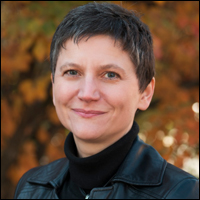 Michela Taufer is an ACM Distinguished Scientist and holds the Jack Dongarra Professorship in High Performance Computing in the Department of Electrical Engineering and Computer Science at the University of Tennessee Knoxville (UTK). She earned her undergraduate degrees in Computer Engineering from the University of Padova (Italy) and her doctoral degree in Computer Science from the Swiss Federal Institute of Technology or ETH (Switzerland). She has a long history of interdisciplinary work with scientists. Her research interests include software applications and their advance programmability in heterogeneous computing (i.e., multi-core platforms and GPUs); cloud computing and volunteer computing; and performance analysis, modeling and optimization of multi-scale applications. She has been serving as the principal investigator of several NSF collaborative projects. She also has significant experience in mentoring a diverse population of students on interdisciplinary research.Her community service includes efforts to spread high-performance computing participation in undergraduate education and research as well as efforts to increase the interest and participation of diverse populations in interdisciplinary studies.
Michela Taufer is an ACM Distinguished Scientist and holds the Jack Dongarra Professorship in High Performance Computing in the Department of Electrical Engineering and Computer Science at the University of Tennessee Knoxville (UTK). She earned her undergraduate degrees in Computer Engineering from the University of Padova (Italy) and her doctoral degree in Computer Science from the Swiss Federal Institute of Technology or ETH (Switzerland). She has a long history of interdisciplinary work with scientists. Her research interests include software applications and their advance programmability in heterogeneous computing (i.e., multi-core platforms and GPUs); cloud computing and volunteer computing; and performance analysis, modeling and optimization of multi-scale applications. She has been serving as the principal investigator of several NSF collaborative projects. She also has significant experience in mentoring a diverse population of students on interdisciplinary research.Her community service includes efforts to spread high-performance computing participation in undergraduate education and research as well as efforts to increase the interest and participation of diverse populations in interdisciplinary studies.
Uri Weiser
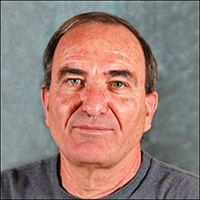 Uri Weiser is a Professor emeritus at the Electrical Engineering department, the Technion IIT and is in the advisory board of numerous startups. He received the bachelor and master degrees in EE from the Technion and Ph.D in CS from the University of Utah, Salt Lake City. Professor Weiser worked at Intel from 1988 till 2007. At Intel, Weiser initiated the definition of the Pentium® processor, drove the definition of Intel's MMX™ technology, invented the Trace Cache, co-managed the a new Intel Microprocessor Design Center at Austin, Texas and formed an Advanced Media applications research activity. Professor Weiser was appointed an Intel Fellow in 1996, in 2002 he became an IEEE Fellow and in 2005 an ACM Fellow. In 2016 Professor Weiser received the IEEE/ACM Eckert-Mauchly Award for “leadership, as well as pioneering industry and academic work in high performance processors and multimedia architectures”. The Eckert-Mauchly award is known as the computer architecture community’s most prestigious award. Prior to his career at Intel, Professor Weiser worked for the Israeli Department of Defense as a research and system engineer and later with National Semiconductor Design Center in Israel, where he led the design of the NS32532 microprocessor.
Uri Weiser is a Professor emeritus at the Electrical Engineering department, the Technion IIT and is in the advisory board of numerous startups. He received the bachelor and master degrees in EE from the Technion and Ph.D in CS from the University of Utah, Salt Lake City. Professor Weiser worked at Intel from 1988 till 2007. At Intel, Weiser initiated the definition of the Pentium® processor, drove the definition of Intel's MMX™ technology, invented the Trace Cache, co-managed the a new Intel Microprocessor Design Center at Austin, Texas and formed an Advanced Media applications research activity. Professor Weiser was appointed an Intel Fellow in 1996, in 2002 he became an IEEE Fellow and in 2005 an ACM Fellow. In 2016 Professor Weiser received the IEEE/ACM Eckert-Mauchly Award for “leadership, as well as pioneering industry and academic work in high performance processors and multimedia architectures”. The Eckert-Mauchly award is known as the computer architecture community’s most prestigious award. Prior to his career at Intel, Professor Weiser worked for the Israeli Department of Defense as a research and system engineer and later with National Semiconductor Design Center in Israel, where he led the design of the NS32532 microprocessor.
Lifelong Learning
ACM offers lifelong learning resources including online books and courses from Skillsoft, TechTalks on the hottest topics in computing and IT, and more.

ACM Case Studies
Written by leading domain experts for software engineers, ACM Case Studies provide an in-depth look at how software teams overcome specific challenges by implementing new technologies, adopting new practices, or a combination of both. Often through first-hand accounts, these pieces explore what the challenges were, the tools and techniques that were used to combat them, and the solution that was achieved.

